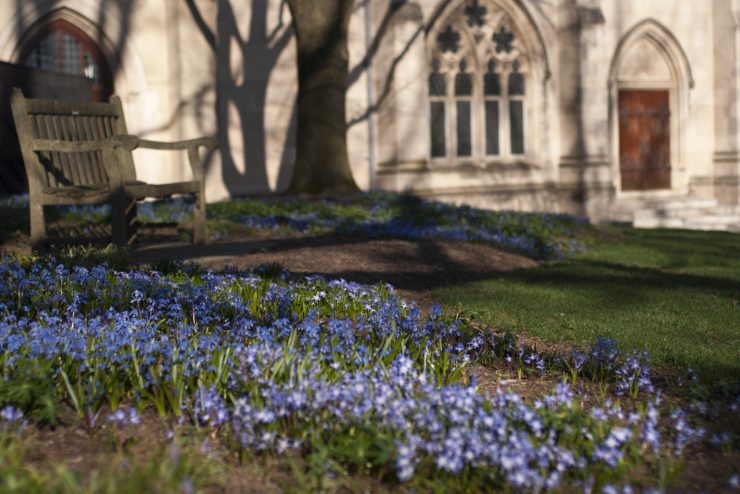Grateful Hearts

Mark 12:1-17
Then he began to speak to them in parables. “A man planted a vineyard, put a fence around it, dug a pit for the wine press, and built a watchtower; then he leased it to tenants and went to another country. When the season came, he sent a slave to the tenants to collect from them his share of the produce of the vineyard. But they seized him, and beat him, and sent him away empty-handed. And again he sent another slave to them; this one they beat over the head and insulted. Then he sent another, and that one they killed. And so it was with many others; some they beat, and others they killed. He had still one other, a beloved son. Finally he sent him to them, saying, ‘They will respect my son.’ But those tenants said to one another, ‘This is the heir; come, let us kill him, and the inheritance will be ours.’ So they seized him, killed him, and threw him out of the vineyard. What then will the owner of the vineyard do? He will come and destroy the tenants and give the vineyard to others. Have you not read this scripture: ‘The stone that the builders rejected has become the cornerstone; this was the Lord’s doing, and it is amazing in our eyes’?” When they realized that he had told this parable against them, they wanted to arrest him, but they feared the crowd. So they left him and went away. Then they sent to him some Pharisees and some Herodians to trap him in what he said. And they came and said to him, “Teacher, we know that you are sincere, and show deference to no one; for you do not regard people with partiality, but teach the way of God in accordance with truth. Is it lawful to pay taxes to the emperor, or not? Should we pay them, or should we not?” But knowing their hypocrisy, he said to them, “Why are you putting me to the test? Bring me a denarius and let me see it.” And they brought one. Then he said to them, “Whose head is this, and whose title?” They answered, “The emperor’s.” Jesus said to them, “Give to the emperor the things that are the emperor’s, and to God the things that are God’s.” And they were utterly amazed at him.
The parable of the wicked tenants was intended by Jesus as an afront to the religious leaders of his day who failed to listen to the prophets and who were refusing to listen to him. As leaders of the faith, they were supposed to work in God’s vineyard in ways that brought people closer to God, but they were more interested in protecting their own positions than in sharing the faith. They seemed to forget that God had given them everything, that they were only stewards, not owners.
Part of the discipline of Lent is not only our willingness to confront our sin, but also our need to look honestly at our lives. Too often we think that we are the authors of our own success. Too often we believe that we have what we have in life because we have earned it and so we deserve it. But that is only an illusion. The truth is, everything we have and everything we are comes completely by the grace of God. The very fact that our hearts beat, our minds think, and hour hands work, is all because of the grace of God. We are not the owners of this life; we are only the stewards of a life given to us by God.
If you are a person of prayer, how often do you begin your prayers with a simple thank you? I’ll admit that much of the time I jump right into what I want from God rather than recognizing all that I have been given by God. To be grateful for this life and all the blessings of it is our first responsibility and the only real way to live authentically in this world. As the psalmist says, Know this: The Lord himself is God; he himself has made us, and we are his; we are his people and the sheep of his pasture. Enter his gates with thanksgiving; go into his courts with praise; give thanks to him and call upon his Name. For the Lord is good; his mercy is everlasting; and his faithfulness endures from age to age.
Faithfully,
Randy+
Direct us, O Lord, in all our doings with thy most gracious favor, and further us with thy continual help; that in all our works begun, continued, and ended in thee, we may glorify thy holy Name, and finally, by thy mercy, obtain everlasting life; through Jesus Christ our Lord. Amen. (BCP p.832)